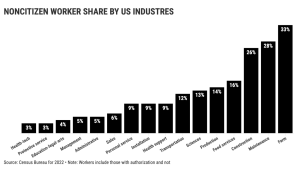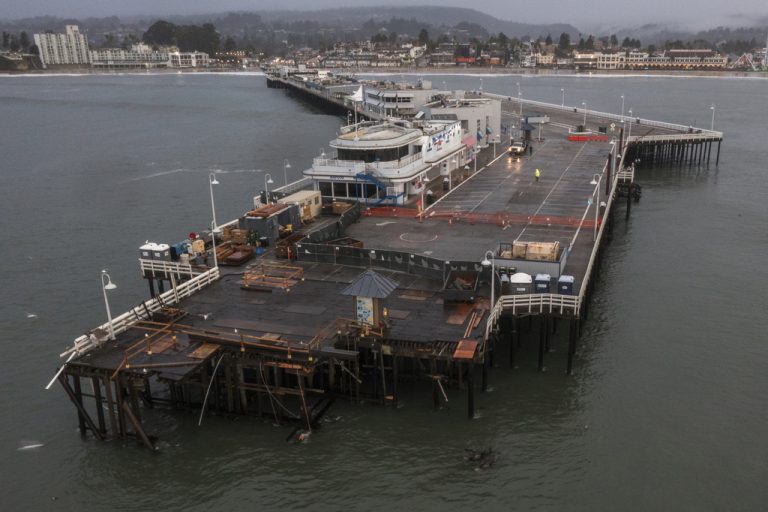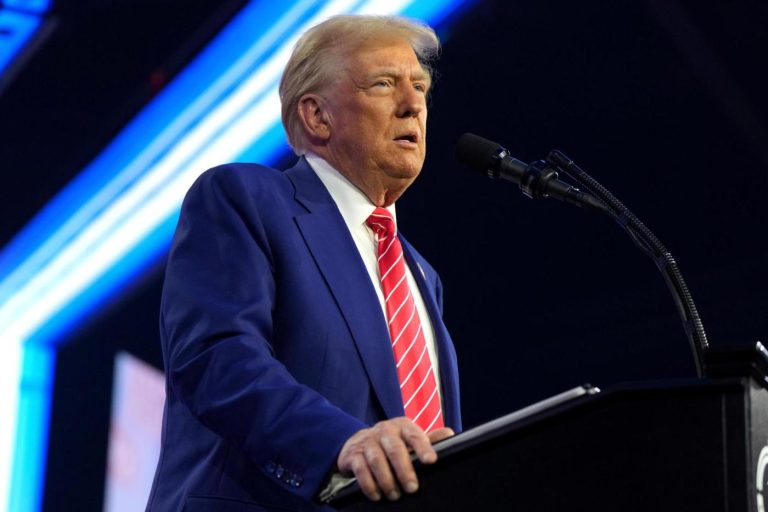Will business prosper under a second Donald Trump presidency? As far as I can tell, many business leaders are pinning their hopes on the belief that he won’t actually follow through on his campaign pledges on tariffs and mass deportation — that they’ll be like his border wall, which, for the most part, he never built but claimed he had.
But I believe that such optimism is misplaced. Trump’s obsessions with tariffs and immigration go way back, and he probably won’t respond well if people ridicule him for not delivering on his signature policy ideas.
If he does not moderate his policies, the damage will be considerable — bigger than even pessimists realize. Hostility to immigrants won’t just create labor shortages for many grueling manual jobs that native-born Americans are reluctant to do. It will also undermine American leadership in technology.
As you may know, Trump has declared his intention to declare a national emergency and deploy the military to help round up huge numbers of immigrants who live in the United States illegally, initially placing them in what Stephen Miller, one of his top immigration advisers, has called “vast holding facilities.”
Such actions would be a humanitarian and civil liberties nightmare. But these considerations probably won’t deter Trump. If anything, he may welcome an uproar because it would make him look strong and decisive.
Ugly — or very ugly
The economic impact may be another matter. Mass deportations would create shortages and raise prices in industries that employ large numbers of immigrants who lack permanent legal status (plus workers legally here who might be caught up in the dragnets), including agriculture, meatpacking and construction.
I honestly don’t know how all this would play out, and I doubt that anyone does. Would it be ugly? Or would it be very ugly?
Beyond these near-term effects, however, there’s a likely consequence of Trumpism that hasn’t received a lot of attention: the threat that it will pose to American technological leadership.
Our technology sector is the wonder of the world. Circa 1995, the world’s major wealthy economies all seemed to be on roughly the same technological level, with similar levels of productivity; if Europe had lower levels of real GDP per capita, one of the main reasons was that Europeans work fewer hours, because unlike us, they take real vacations.
But as a recent report for the European Commission by Mario Draghi, a former president of the European Central Bank, points out, America has pulled ahead again in recent decades. What I find interesting about this U.S. surge is that it isn’t broadly based: Europeans do most things about as well as we do. Instead, it’s all about America taking the lead in digital technology.
What’s driving that success story? No doubt it has multiple causes, not least the network externalities created by the technology cluster in Silicon Valley, which has incredibly high per capita income. But spend time in America’s tech hubs, and it becomes obvious that immigrants — often highly educated immigrants from South Asia and East Asia — are also a key part of the story.
Well, you may say, that shouldn’t be an issue. MAGA’s antipathy is aimed at immigrants in the United States illegally taking blue-collar jobs, not tech wizards from India, right?
Wrong.
Targeting skilled labor
The first Trump administration was clearly hostile to legal, highly educated immigrants as well as blue-collar workers who live here illegally. It made getting or renewing visas significantly harder for high-skilled foreigners, which is the main way they can work here. And many of these workers fear that these policies will return, only worse.
If you want a sense of what Trump’s inner circle probably believes, it’s worth looking at a 2016 conversation between Miller and Steve Bannon, a longtime Trump ally who was released from prison in time to campaign for Trump. Bannon declared that legal immigration is the real problem, denouncing the “oligarchs” bringing in foreigners to do IT jobs he believes should go to Americans. “Well, that was brilliantly stated,” replied Miller.
Related Articles
Trump vows tariffs over immigration. What the numbers say about border crossings, drugs and crime
Surveillance tech advances by Biden could aid in Trump’s promised crackdown on immigration
Here’s how Donald Trump’s deportations could cost California ‘hundreds of billions of dollars.’
Elon Musk is sharing some details about his immigration path. Experts say they still have questions
Presidents have used immigration ‘parole’ since the 1950s. Now it could disappear under Trump
Will it matter that some of these oligarchs, most notably Elon Musk, were big Trump supporters? Probably less than they think. Historically, oligarchs who imagine that they have bought influence with an authoritarian leader discover that they are far more dependent on his goodwill than he is on their money. My guess is that Musk, in particular, will soon learn that he needs Trump more than Trump needs him.
So, I’ll be very surprised if the turn against immigrants spares highly educated workers. Specific policies aside, one reason America has been so successful at attracting the world’s best and brightest is the openness of our society; more, perhaps, than any other nation, we have been a place where people from different cultures can feel welcome. That era may come to an end.
For the next couple of years, the proposed raids and detention facilities would probably dominate the news, and rightly so. But a decade from now, we may also be acutely aware that by turning on immigrants, we undermined the technology sector, one of the things that actually makes America great.
Paul Krugman is a New York Times columnist.












